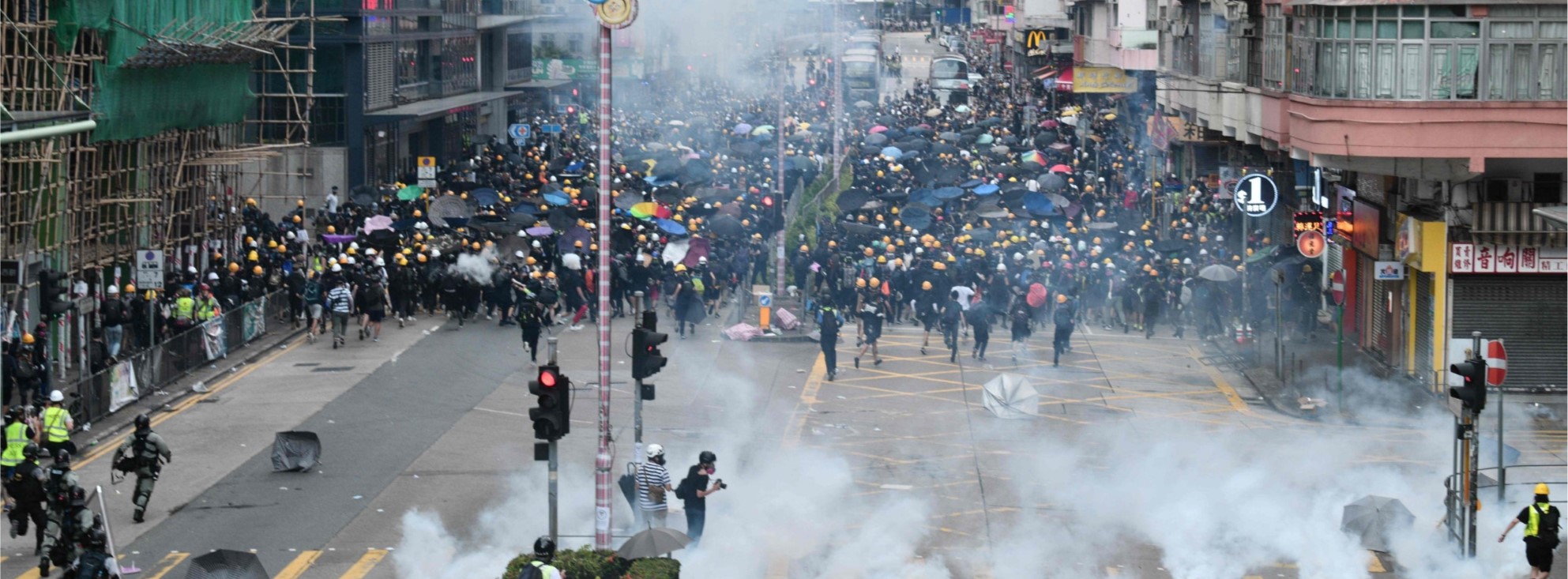
|

|

|

|

Can Hong Kong Retain Its Autonomy?
(Note: companies that could be impacted by the content of this article are listed at the base of the story (desktop version). This article uses third-party references to provide a bullish, bearish and balanced point of view; sources listed in the “Balanced” section)
Hong Kong protests started when opposition arose against the now-suspended bill which would have granted Beijing the ability to extradite suspects to mainland China. Activists are fighting against the erosion of constitutional freedoms and democratic processes which have been instated in Hong Kong’s Basic Law. Article 45 of the Basic Law, instated in 1990, states that the chief executive, Hong Kong’s highest-ranking political member, is selected through “universal suffrage upon nomination by a broadly representative nominating committee in accordance with democratic procedures.” In the Basic Law, Beijing will need to approve all voter decisions made by the people in Hong Kong. The National People’s Congress Standing Committee ruled that in order for a candidate to appear on the Hong Kong voting ballot, they would have to receive more than half of the votes from the nominating committee. This would make it, so that the ballot is identical to the picked chief executives of the election committee and guarantees the candidates would be selected by Beijing. The new amendments to Basic Law legislation have led to increasingly violent street protests by activists who are understandably concerned about retaining their rights.